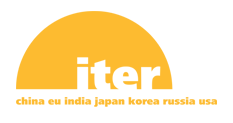ITER NEWSLINE
-
Nobel Laureates
How can science change the world for the better?
Nobel Laureates | How can science change the world for the better?
Every year, a group of Nobel Laureates convenes in Lindau, Germany, for a week of interaction with young scientists from all over the world. ITER was invited to take part this year in a panel discussion titled "How Can Science Change the World for the Better?"

ITER's Chief Scientist Tim Luce, far right, participates in the closing session of the 69th Nobel Laureate Meeting in Lindau, Germany.
Created in 1951 to foster the exchange among scientists of different generations, cultures, and disciplines, the Lindau Nobel Laureate Meetings seek to inspire and excite by creating a forum for interaction between world-recognized specialists and the scientists of the future.
For this year's 69th edition—dedicated to physics—580 undergraduates, PhD students and postdoctoral researchers were invited from 89 countries. Thirty-nine Nobel Laureates in Physics took part in the event.

Speaking to the next generation of leading scientists ...
For the final panel discussion on "How Can Science Change the World for the Better?" the ITER Project had a place at the table. Tim Luce, Head of the Science & Operations Department and Chief Scientist, participated in the discussion with Nobel Laureates Steven Chu (1997 Nobel Prize in Physics, former US Secretary of Energy), Vinton Cerf (co-inventor of the internet, now with Google), Adriana Marais (advocate for human space travel to Mars), and Brian Schmidt (2011 Nobel Prize in Physics, Vice-Chancellor of Australian National University).
Led by moderator Karan Khemka, the discussion ranged from sustainable development, to the rise of artificial intelligence, to the role of scientists in society. ITER's presence was important, because these young scientists are part of the generation that will need to learn from ITER and put the planet on a path to a fusion-powered economy.
No guarantees, but that really could change the world for the better.
return to the latest published articles








